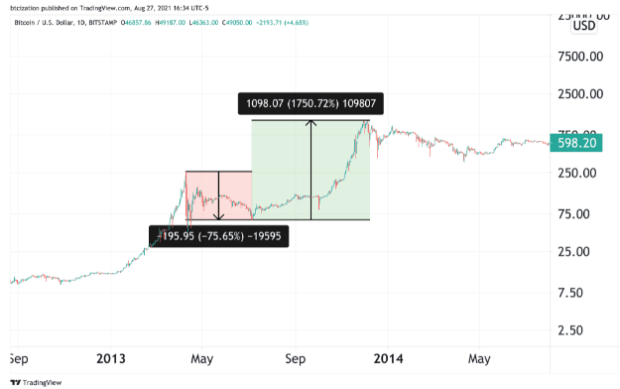Bitcoin Magazine’s Week in Review: Security Takes Center Stage
In a week where bitcoin had mixed price signals, one persistent topic that continued to rear its head was that of security. Money laundering and security breaches have plagued the crypto industry and this week saw new proposals pushed out to better monitor the sector.
Crypto, Regulations and Politics
Using Crypto to Funds WMD Programs
North Korea is getting better at its game. A leaked United Nations report provided insight into Pyongyang’s sophisticated machinery which targets cryptocurrency exchanges as opportunities to steal funds for the state which are then funneled into its nuclear weapons program. Known for its exploits in breaching traditional financial institutions, Pyongyang’s cyber hacking capabilities now include exchanges and mining pools. The North Korean government is also reportedly using digital assets to launder cash. So far, North Korea has netted at least $2 billion from its illicit activities within the crypto sector.
South Korea and the Czech Republic Develop Crypto Regulations
The fear of the unknown has forced some countries to take drastic steps to promote oversight of the crypto industry.
For instance, the Czech Republic has revealed that it will regulate its crypto sector beyond the standard recommendations. The European Union’s Fifth Anti-Money Laundering Directive (AMLD5) seeks to regulate the way exchanges and other asset custodians operate within member countries but the Czech Republic has broadened that umbrella by extending its oversight to cover every crypto firm in its jurisdiction.
Once these regulations are formalized, crypto firms like Braiins, the Prague-based company behind Slush Pool, would be required to register with the National Trade Licensing Office. Companies that fail to comply can expect a fine of $20,000 or more.
South Korea also revealed a new proposal that will see the country’s Financial Intelligence Unit (FIU) hold the crypto industry on a tight leash. While the FIU has indirectly controlled crypto firms through banking institutions in the past, the agency now wants to take a direct approach to things.
Technical Developments
Could “Vaults” Be A Permanent Solution to Hacks?
Bitcoin Core contributor Brian Bishop has floated a technical measure that could end crypto heists in the future. Bishop unveiled the idea of Bitcoin Vaults; essentially, wallets which have two private keys attributed to them. The “Vault Key” will be used to send coins, while the “Recovery Key” can be used to reverse unauthorized transactions after some time.
According to Bishop, this could be a lasting solution to hacks and security breaches. Bishop’s idea is a revised plan from college researchers, who proposed a plan to lock up Bitcoin in a way that makes it difficult to steal the funds.
With Stratum V2, Braiins Plans Big Overhaul in Pooled Bitcoin Mining
After spending two years on development, Slush Pool operator Braiins announced the launch of Stratum V2; a new iteration of the original Stratum mining protocol. In its announcement, Braiins asserted its belief that this new version is markedly better than the original, adding, amongst other things, that Stratum V2 will bring a solution to some of the security and technical issues that Stratum V1 had.
To bring all these functionalities to life, Braiins had to solve most of the problems hashers endured with the BetterHash Protocol. The new protocol gives hashers more flexibility, allowing them to pick transactions, choose a block version and even opt to send a block template to the mining pool operator.
Bitcoin Adoption
Bitcoin Trading in Venezuela Hits All-Time High
Given the effects of economic sanctions imposed against Venezuela, it is no surprise that the country’s citizens are looking for some semblance of stability. Statistics have revealed that the exchange rate between bitcoin and the bolívar reached an all-time high in August 2019, as both the country’s citizens and its government began guzzling up crypto assets en masse. Bitcoin adoption in the country is skyrocketing, and with the sanctions continuing, the sky’s the limit.
BitPiggys Helps Children Stack Satoshis and Learn Financial Responsibility
Opendime has developed to be an innovative way to merge piggy banks and Bitcoin.
Created by a New Jersey businessman known as Jim, OpenDime’s BitPiggys are digital piggy banks for children who would like to learn the saving culture. With them, children will be able to save up their bitcoin without having to go through other interfaces.
The post Bitcoin Magazine’s Week in Review: Security Takes Center Stage appeared first on Bitcoin Magazine.




![[promoted] Stackr: The Dawn Of A Digital Asset Savings Solution](https://www.lastcryptocurrency.com/wp-content/uploads/2018/10/5552/promoted-stackr-the-dawn-of-a-digital-asset-savings-solution.jpg)




